Introduction
Hello, I’m Ginnie Marshall, formerly known as Ginnie Halling, and I’m delighted to share my insights on Functional Capacity Evaluations (FCE) with fellow physical and occupational therapists. With over 30 years of experience in functional testing, work hardening, conditioning, and related services, I’ve dedicated my career to enhancing our understanding and implementation of FCEs. Many of you might know me from my articles or through my work in the field, and I’m excited to connect with you through this video series.
In these videos, we’ll explore the rich tapestry of FCE, an essential tool in our professional arsenal. As therapists, our role extends beyond patient care; it involves accurately assessing and determining the work capabilities of our clients. This series is designed to deepen your understanding of FCE, whether you’re seasoned in this practice or just beginning to consider its applications in your work. My journey through the various facets of this field, especially after taking over DSI Work Solutions, has been filled with learning and teaching moments that I am eager to share with you.
Our discussions will be rooted in the DSI Work Solutions methodology, shaped by pioneers like Susan Isernhagan, and my own experiences in the field. From defining FCEs to navigating complex patient interactions, these videos aim to equip you with the knowledge and confidence to conduct effective evaluations. I hope to provide you with a blend of theoretical knowledge and practical advice, ensuring that you can apply these concepts effectively in your practice. Join me as we embark on this journey of exploration and learning, enhancing our skills to better serve our patients and the field of physical and occupational therapy.
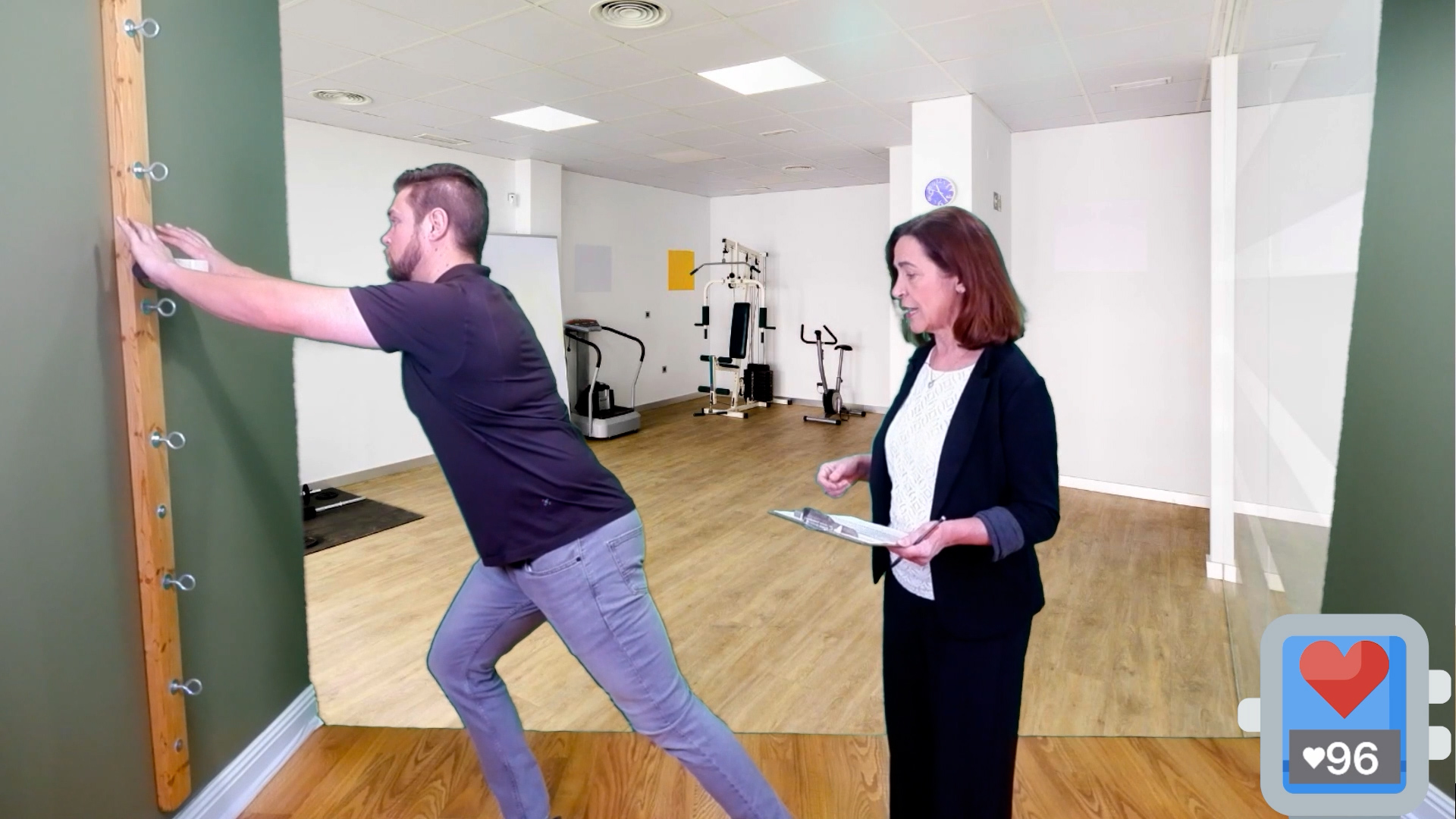
The DSI Work Solutions Methodology
In the realm of Functional Capacity Evaluations, the DSI Work Solutions methodology stands as a beacon of innovation and practical application. This methodology, which I have been closely involved with, revolutionized how we approach FCEs. Its roots trace back to the pioneering work of Susan Isernhagen, a figure whose contributions have significantly shaped our current practices.
Susan Isernhagen’s work laid the foundation for the DSI methodology, emphasizing a holistic and comprehensive approach to FCEs. Her vision was clear: to create a system that not only assesses a patient’s functional capabilities but does so with a depth that aligns closely with real-world work demands. This methodology isn’t just about measuring physical strength or endurance; it’s about understanding how these attributes play out in the actual work environment. It considers the diverse and sometimes complex needs of individuals returning to work, ensuring that assessments are both accurate and relevant.
The importance of the DSI Work Solutions methodology in FCE cannot be overstated. It provides a structured yet flexible framework that therapists can adapt to various scenarios. This adaptability is crucial, considering the wide range of work-related challenges and conditions we encounter. By incorporating this methodology into our practice, we offer our clients a more targeted and effective evaluation. It’s not just about determining if someone can return to work; it’s about understanding how they can do so safely and sustainably. Susan Isernhagen’s contributions have empowered us as therapists to make more informed decisions, paving the way for better patient outcomes and more effective rehabilitation processes. As we delve deeper into this series, we will explore the nuances of this methodology and how it can be applied to enhance your practice in FCE.
Structure and Process of FCE
Functional Capacity Evaluations (FCEs) are a vital component in the field of physical and occupational therapy, offering a comprehensive assessment of an individual’s ability to perform work-related tasks. These evaluations are carefully structured to cover a broad spectrum of functional abilities, ensuring a detailed and accurate understanding of a patient’s work capacity.
The process of an FCE typically involves a series of standardized tests, meticulously designed to evaluate various aspects of functional and work-related abilities. These include physical strength, endurance, flexibility, as well as cognitive and emotional capabilities. The testing is conducted in a controlled setting, which is crucial for maintaining the consistency and reliability of the results. For example, a patient’s capacity for lifting, range of motion, and endurance in work-simulated tasks are assessed to paint a comprehensive picture of their capabilities in a work environment.
Standardized testing forms the backbone of FCEs for several reasons. It ensures that the evaluation process is objective, allowing for fair and unbiased assessments across different individuals. This standardization is also key in tracking a patient’s progress over time, particularly in rehabilitation contexts where monitoring changes in functional abilities is essential. Most importantly, standardized testing provides a robust, evidence-based foundation for crucial decisions regarding a patient’s return to work, job responsibility modifications, or further rehabilitation planning.
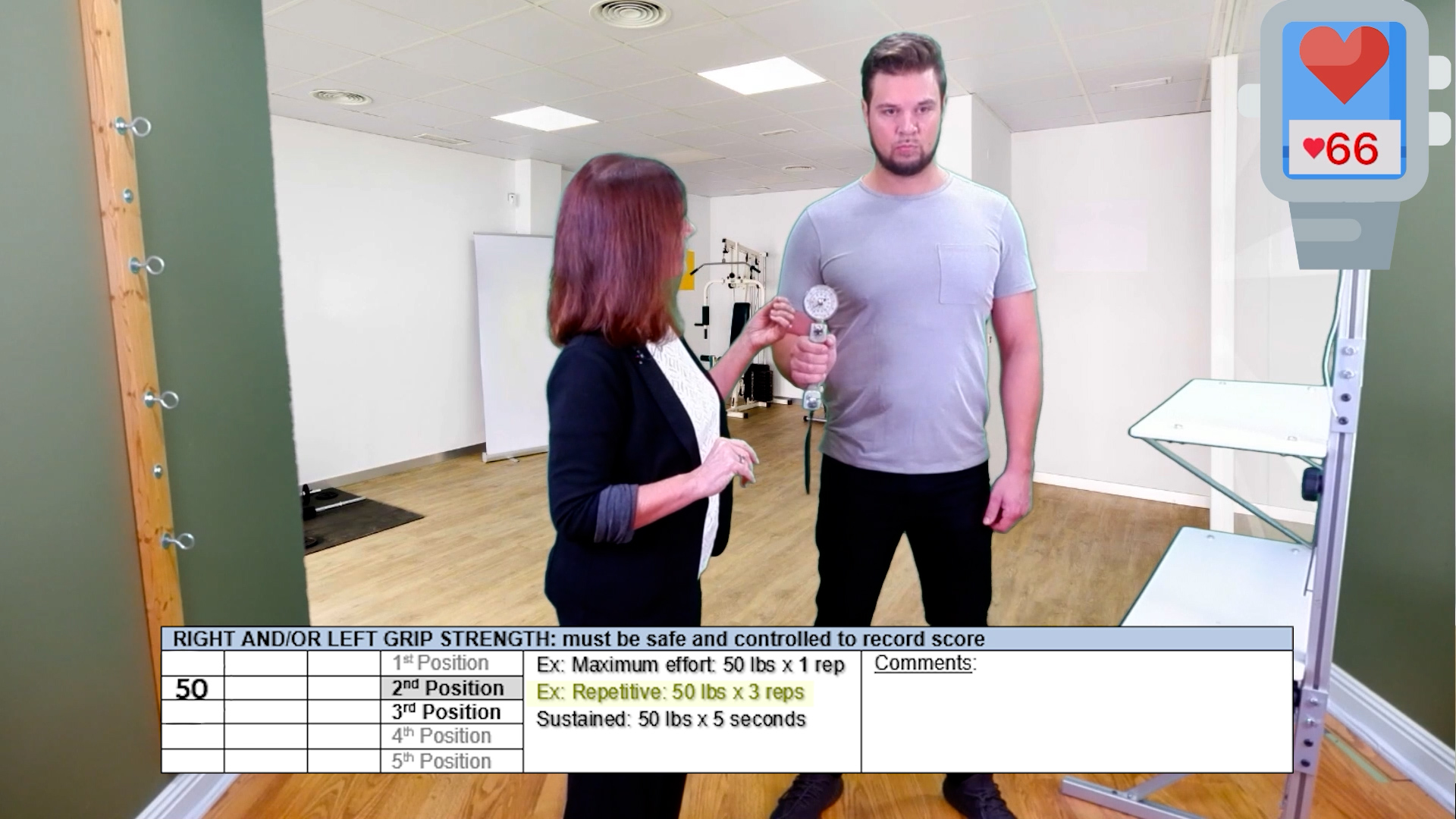
The Importance of Accurate Assessment
The success of Functional Capacity Evaluations (FCEs) hinges significantly on the accuracy of the assessment. This accuracy is crucial, not just for the integrity of the evaluation process, but also for the outcomes that influence a patient’s return to work and overall well-being. However, conducting FCEs can present unique challenges, especially in complex or difficult situations.
One of the primary challenges in FCEs is ensuring that the assessment accurately reflects a patient’s true functional abilities. This can be particularly difficult in cases where patients might be experiencing fear, defensiveness, or even non-cooperation. Such emotional and psychological factors can lead to variability in effort and performance during the evaluation. For instance, a patient who is apprehensive about returning to work might unconsciously underperform, while another, eager to resume work, might push beyond their safe limits. Recognizing and addressing these nuances is key to ensuring that FCEs provide a realistic and fair representation of a patient’s capabilities.
Central to overcoming these challenges is the identification of genuine effort and consistent performance. As therapists, it’s essential to develop skills in discerning the sincerity of effort, which can often be subtle and complex. This involves not only observing physical performance but also understanding the psychological and emotional states that might influence a patient’s behavior during the evaluation. Consistency in performance across different tasks and on different occasions is another critical aspect to monitor. Inconsistencies might indicate areas of concern, either in terms of physical limitations or motivational factors, and need to be carefully evaluated to understand their impact on the assessment.
An accurate FCE is not just about measuring physical abilities; it’s about understanding a patient in their entirety. This comprehensive approach ensures that recommendations made post-evaluation are both appropriate and beneficial for the patient’s return to work journey. By focusing on the accuracy of assessment and understanding the multifaceted nature of patient performance, therapists can significantly enhance the effectiveness of FCEs, leading to better outcomes for patients in their pursuit of functional recovery and work reintegration.
Real-World Applications and Case Studies
Functional Capacity Evaluations (FCEs) have profound implications in the real world, significantly influencing the lives and careers of individuals undergoing these assessments. Their applications extend beyond mere evaluations, playing a pivotal role in rehabilitation, return-to-work strategies, and even in shaping legal outcomes in workers’ compensation cases. To illustrate the transformative impact of FCEs, let me share a particularly memorable case from my own experience.
Early in my career, I encountered a challenging case that profoundly shaped my approach to FCEs. A gentleman was referred to me for a Return to Work evaluation following multiple failed total hip replacements, eventually leading to the removal of his hip joint. This was a unique situation for me at the time, and I approached it with a mix of curiosity and uncertainty. His medical history was complex, and the referral question was crucial: Could he return to his job as a conductor on a commuter train?
This case required more than a standard FCE. It demanded an in-depth understanding of his specific job requirements and how his unique physical limitations would interact with these demands. During the evaluation, I found that despite his altered gait and the absence of a hip joint, he had a surprising level of functional ability. He could walk safely and manage stairs, but it was unclear if these abilities aligned with the demands of his job as a train conductor.
To address this, we went beyond the standard FCE protocol. We closely examined the job description, engaged in discussions with my client about his job, and sought additional information to accurately answer the referral question. This case highlighted a crucial aspect of FCEs: while they provide a comprehensive overview of an individual’s general work abilities, sometimes additional, job-specific information is necessary to make a well-informed decision about their return to work.
Through this case, I learned the importance of not just relying on the standardized components of FCEs but also considering the individual’s specific job demands and their unique medical and functional profile. It underscored the value of FCEs in not only assessing general work capabilities but also in crafting tailored recommendations for safe and sustainable employment. This approach ultimately helps in making meaningful contributions to an individual’s life, aiding them in their journey back to work, and ensuring their safety and well-being in their professional roles.
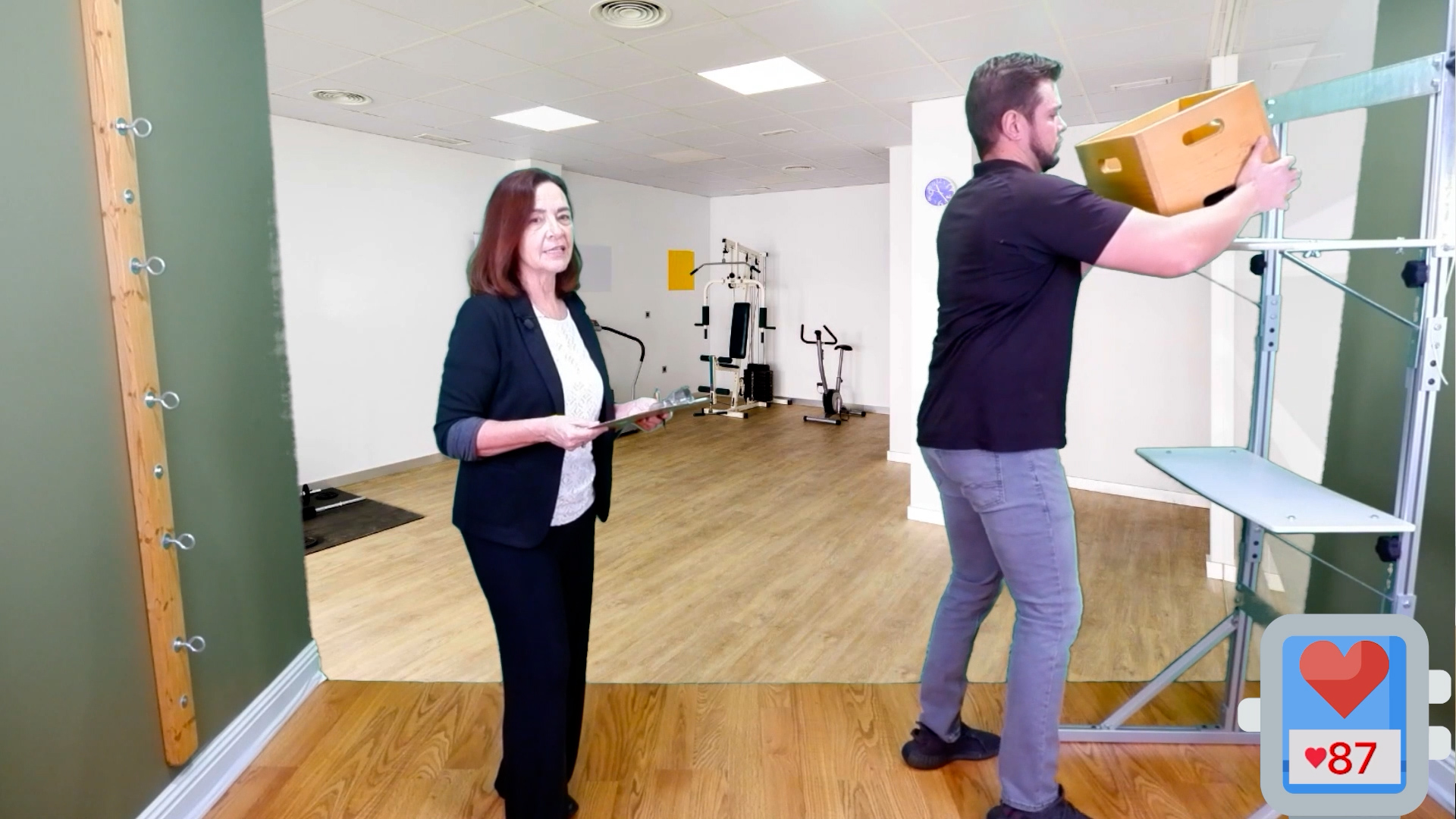
The Role of FCE in Rehabilitation and Employment
Functional Capacity Evaluations (FCEs) play a crucial role not only in assessing a patient’s current work abilities but also in shaping their rehabilitation journey and future employment prospects. These evaluations serve as a bridge between the clinical understanding of a patient’s capabilities and the practical demands of their work, ensuring that return-to-work decisions are well-informed and tailored to individual needs.
In the context of rehabilitation planning, FCEs provide invaluable insights. They help identify specific functional limitations that need to be addressed through targeted therapy. For example, if an FCE reveals that a patient has limited lifting capacity, rehabilitation can be focused on enhancing strength and conditioning in relevant areas. This targeted approach ensures that rehabilitation efforts are aligned with the patient’s personal and occupational goals, leading to more effective and efficient recovery processes.
Beyond rehabilitation, FCEs are instrumental in facilitating employment accommodations. The detailed assessment of a patient’s functional abilities allows us to recommend necessary workplace adjustments. These might include ergonomic modifications, altered work hours, or even a change in job role, all aimed at accommodating the patient’s current capabilities while promoting their health and productivity. By providing concrete data on a patient’s functional limitations and abilities, FCEs enable employers to make informed decisions about these accommodations, fostering a supportive work environment.
Moreover, FCEs have a significant role in disability determination and legal scenarios. In cases where patients are seeking workers’ compensation or disability benefits, FCEs offer objective evidence about their work-related abilities and limitations. This information is critical in determining eligibility for benefits and can also play a key role in legal proceedings related to workplace injuries. By providing clear, objective data on a patient’s functional status, FCEs help ensure that decisions in these scenarios are fair and based on accurate information.
Challenges and Opportunities in FCE
Functional Capacity Evaluations (FCEs) present a unique set of challenges and opportunities for therapists. One of the most significant challenges is building trust and cooperation with patients. Often, patients referred for FCEs are at a vulnerable point in their lives, dealing with the uncertainty of their work future and the anxiety of their physical limitations. This emotional backdrop can lead to a lack of trust and cooperation, which can significantly impact the accuracy and efficacy of the evaluation.
As therapists, it’s essential to approach these situations with empathy and understanding. Building rapport with patients is crucial. It involves actively listening to their concerns, explaining the purpose and process of the FCE clearly, and reassuring them about the objective nature of the evaluation. Demonstrating that the FCE is conducted in their best interest to facilitate a safe return to work or to identify appropriate accommodations can often alleviate anxieties and foster cooperation.
Beyond these challenges, FCEs offer therapists substantial opportunities for professional growth and skill enhancement. Staying updated with the latest techniques and methodologies in FCE is vital. This can be achieved through continued education, attending workshops, and engaging in professional forums where insights and experiences are shared. Developing proficiency in new assessment tools and technologies that aid in FCE can also enhance the therapist’s ability to conduct more comprehensive and accurate evaluations.
Moreover, mastering the nuances of patient communication and behavioral observation during FCEs is an invaluable skill. Understanding the subtle cues that indicate effort levels or pain thresholds, for instance, can greatly enhance the accuracy of the evaluation. This skill comes with experience and a keen understanding of human behavior in the context of physical limitations and psychological stress.
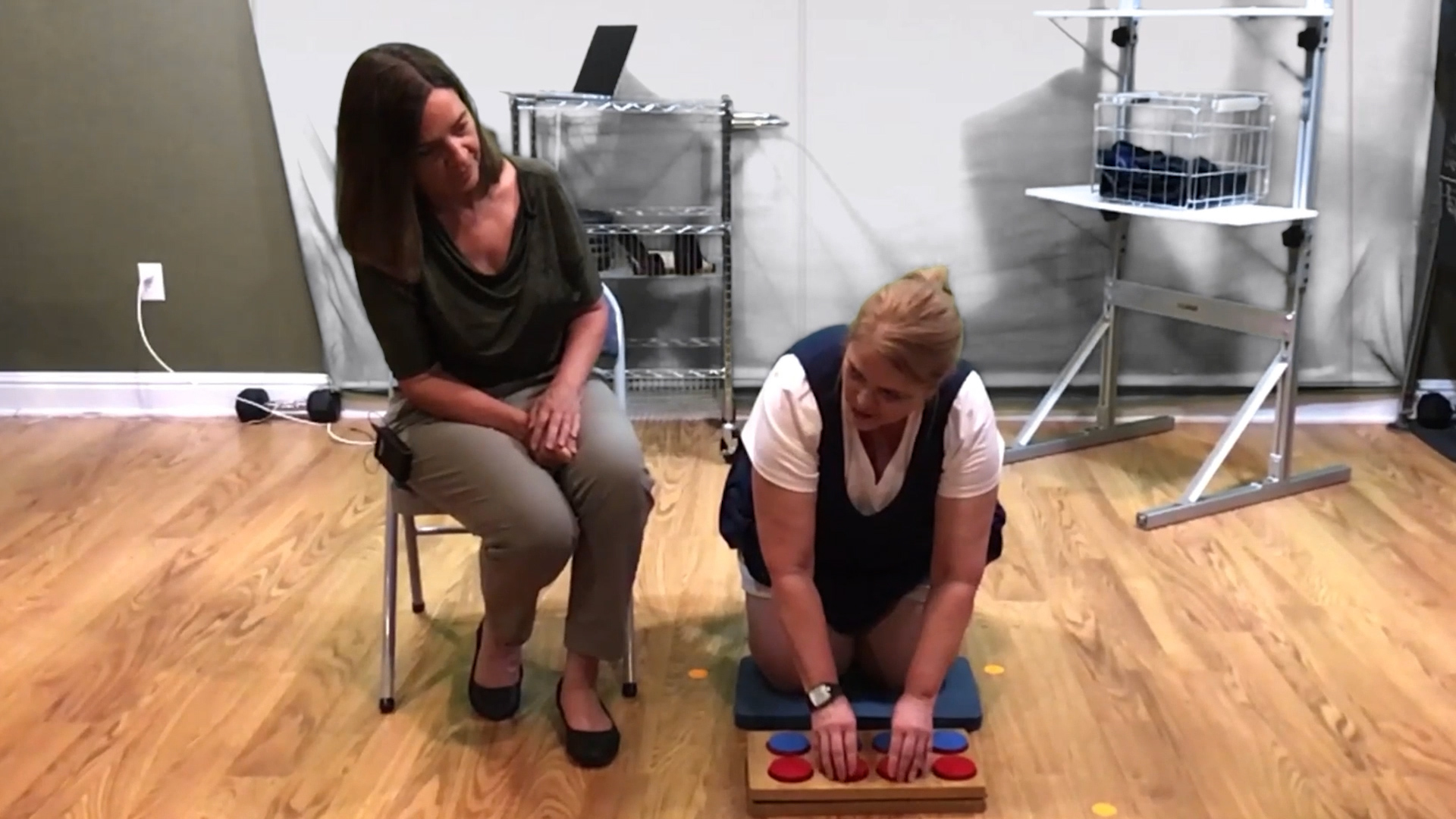
Learn and Grow
I strongly encourage you to seize every opportunity to expand your expertise in this vital area. The FCE Independent Learning course is an excellent resource designed to support your professional development in this field. This comprehensive program offers a wealth of resources to enrich your learning experience. With 6 hours of on-demand video content, you’ll be able to dive deep into the intricacies of FCEs at your own pace and on your schedule. The course’s flexibility, offering 12 months of access, allows you to learn and revisit content as needed, fitting seamlessly into your busy professional life.
The FCA Productivity Suite included in the course is a valuable tool, enhancing your efficiency and effectiveness in conducting evaluations. Alongside this, the course provides downloadable resources, equipping you with practical materials to apply in your practice. Whether you’re at your desk or on the move, the ability to learn from anywhere ensures that your professional development is never on pause.
Moreover, this course is not just about acquiring knowledge; it’s about applying it. The inclusion of a quiz and the award of 7 credit hours upon completion ensures that your learning is structured, comprehensive, and recognized. Upon completing the course, you’ll receive a certification, a testament to your commitment and newly acquired expertise in FCE.


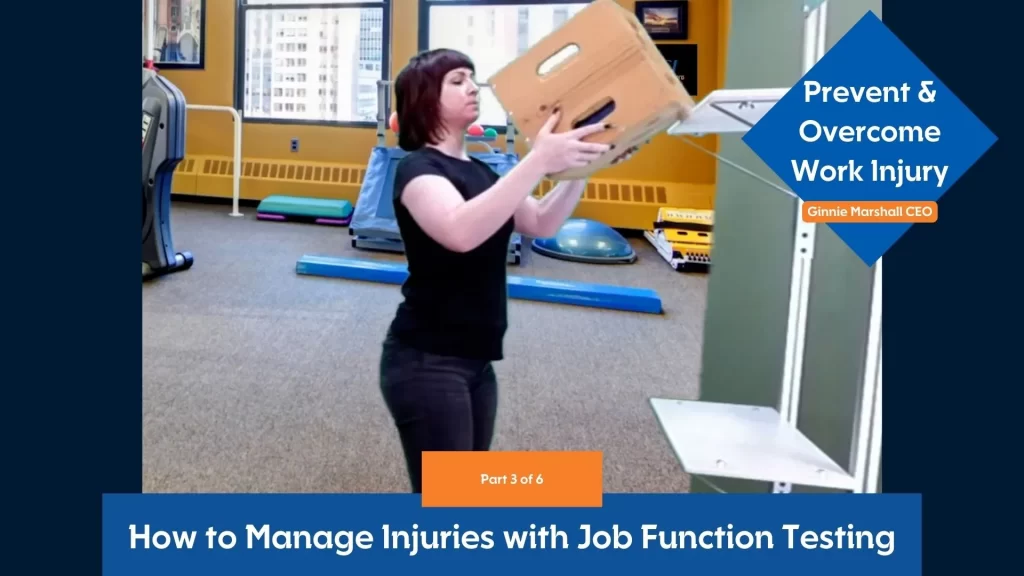
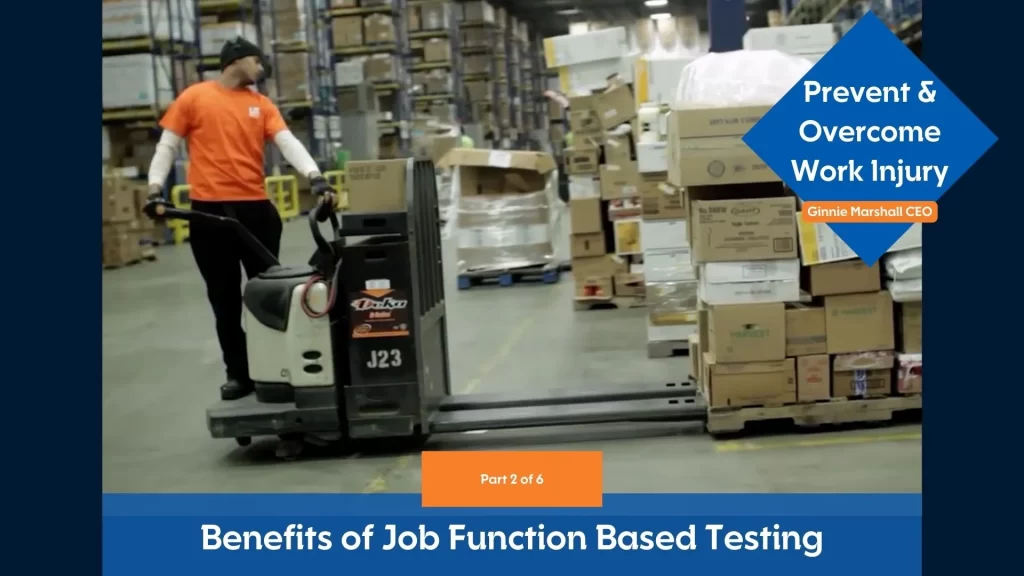
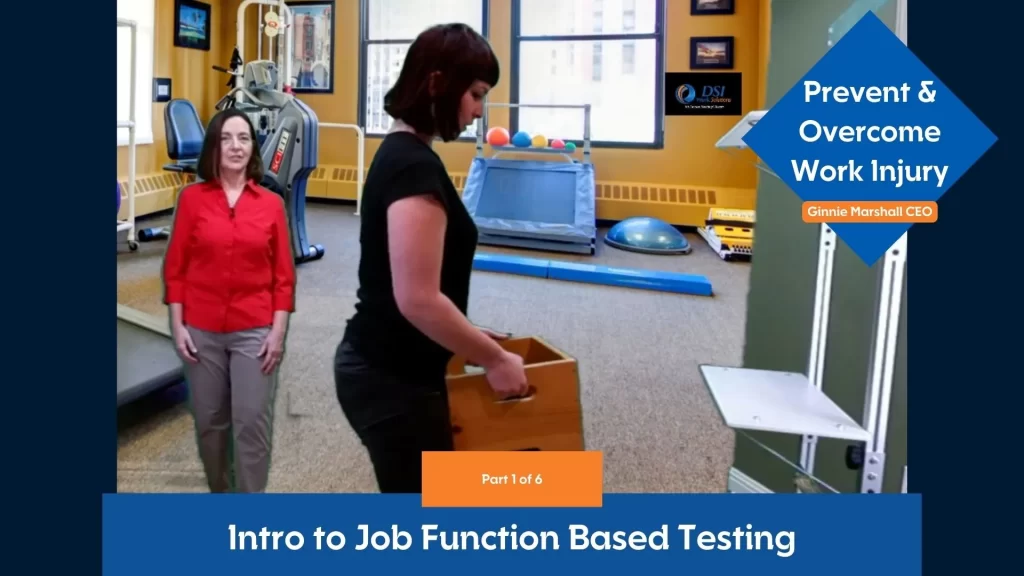



.webp)
